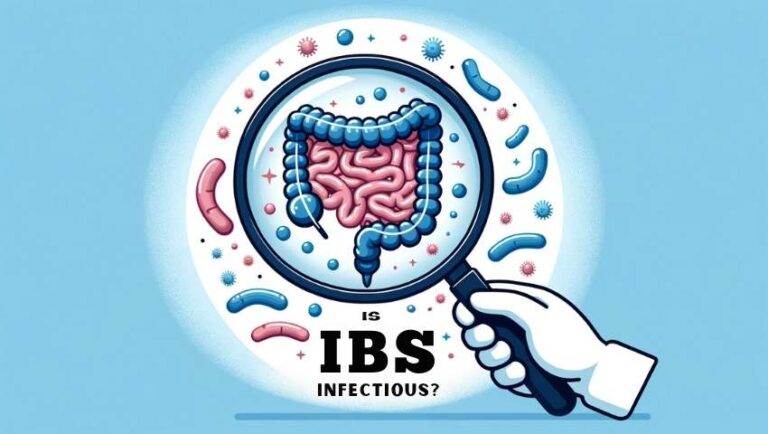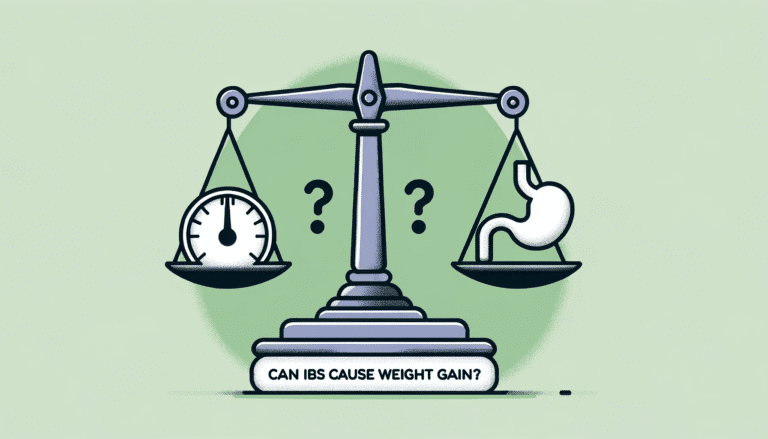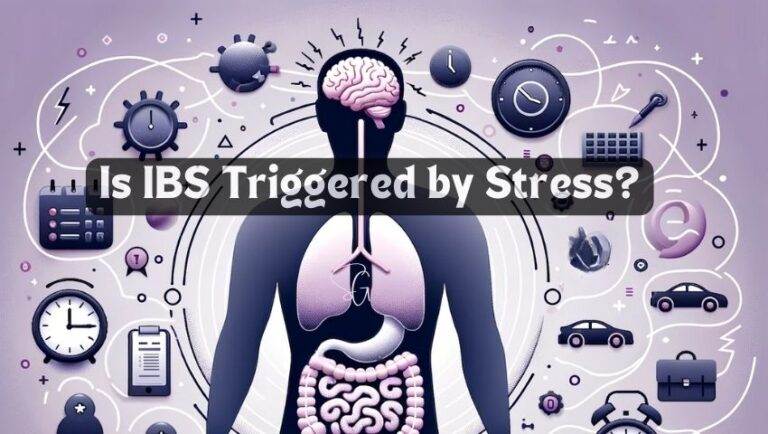Can IBS Stop You From Working? – Nope, You CAN Take Control!

I’m not going to lie – the early stages of my IBS diagnosis left me with many questions. One that kept popping up was – can IBS stop you from working?
For me personally, I initially found it wasn’t easy to adjust my working life as a newly diagnosed IBS sufferer in 2021.
Fast forward to now, and I’m happy to say that’s no longer the case.
If you’re one of many people with IBS who have been through this too, here’s your survival guide to following in my footsteps.
Check out my guide to the best jobs for IBS sufferers for some excellent career options you can consider!
Key Takeaways
- IBS can turn your workday into a high-stress obstacle course, so consider talking to HR about flexible scheduling or remote work options away from the office.
- Forget one-size-fits-all remedies; individualized treatment plans can include specialized diets like low FODMAP, prescribed antispasmodics, or even gut-directed hypnotherapy.
- Stress isn’t just in your head; it worsens IBS symptoms like diarrhea and constipation. Stress management techniques like mindful eating and biofeedback could make all the difference.
Behind the Symptoms: The Reality of Irritable Bowel Syndrome (IBS)
Alright, let’s get real. IBS doesn’t just complicate your life; it waltzes into your workplace like it owns the place, leaving you stressed and distracted.
I’ve been there, diagnosed in 2021, wrangling both celiac and IBS. Picture this: One minute you’re crunching numbers or brainstorming ideas; the next you’re Google-mapping the closest restroom. Fun times, right?
The gut drama—oh, the cramping, bloating, and let’s not even talk about the unpredictable bathroom breaks—can make a workday feel like an episode of “Survivor.” But, guess what? It’s manageable.
Don’t think Pepto or some magic pill is your ticket out, though!
The Impact of IBS on Daily Activities
IBS isn’t just a dinner party downer; it’s a full-blown work interrupter. One minute, you’re killing it on a project, and the next, you’re sprinting for the bathroom.
Sound familiar? Yeah, welcome to my life since my double whammy of a dual celiac and IBS diagnosis in 2021.
Quick Fixes to Try at Work:
- Emergency Snack Drawer: Stock it with IBS-friendly bites.
- Desk Yoga: A couple of stretches could ease minor cramps.
- Time Blocks: Schedule work around predictable bathroom breaks.
Bosses, take note. People with IBS need wiggle room—maybe a flexible schedule or a work-from-home day. It’s not just “feeling a bit off;” it’s a real hurdle.
So, meds, diet changes, or even short meditative breaks are not luxuries; they’re essentials in our toolbox.
Struggling with IBS flare-ups? There’s a game plan for that.
IBS and Work-Related Challenges

Dealing with IBS and work-related challenges, I’ve juggled between managing my symptoms and meeting my professional commitments.
It’s not uncommon for me to be late for work or take sick days when my symptoms of IBS worsen. I’m constantly worried about IBS interfering with my ability to do my job properly.
Here’s a visual representation to help illustrate the struggle for IBS sufferers:
| Challenge | Solution |
|---|---|
| Late for work due to flare-ups | Discuss flexible hours with your employer |
| Sick days increase | Learn to manage your IBS better, prevent IBS attacks |
| Worsening symptoms | Seek medical help, adjust treatment plan |
| Fear of not meeting job expectations | Remember, employers have a legal duty to make reasonable accommodations |
Coping Strategies for Managing IBS at Work
Understanding and implementing effective coping strategies for managing IBS at work gives me a sense of control, but it’s not an easy task.
Here are my top three ways to manage irritable bowel syndrome so it doesn’t affect your ability to work:
Flexible Schedule: Discuss with your employer the possibility of having an adaptable schedule. That way, you can leave early or take sick leave when your symptoms flare up.
Doctor Consultation: During IBS Awareness Month, make it a point to talk to your doctor about IBS and its impact on my work. Regular consultations will help you manage irritable bowel syndrome more effectively.
Stress Management: I’ve found that participating in stress-relieving activities significantly reduces my IBS symptoms. Yoga, meditation, and mindfulness exercises are my go-to coping strategies. Give them a shot for yourself, it’s more than worth it!
Seeking Professional Help: When and Why
My doctor’s advice has been invaluable, but I’ve also learned it’s crucial to seek professional help when my IBS symptoms become too disruptive or unpredictable.
When my symptoms such as abdominal pain become severe and frequent, it’s a clear sign I need to reach out to a professional.
If I’m experiencing high levels of anxiety and stress, which can exacerbate IBS symptoms, it’s time to seek help.
After trying self-care measures like regular exercise without significant relief, I know it’s time to consult a specialist.
The doctor may recommend therapy for IBS, including gut-directed hypnotherapy, which has been shown to reduce IBS symptoms. I’d highly recommend trying Nerva IBS for this!
Remember, seeking professional help isn’t a sign of weakness but a step towards reclaiming your life.
Can IBS Stop You From Working? – Final Thoughts
Trying to work when you have IBS can be quite a challenge. I’ve been in those shoes, tackling symptoms while trying to perform at my best.
Over time, I’ve learned to manage my condition, advocate for my needs at work, and seek the necessary support.
With the right strategies, you too can effectively handle your IBS in the workplace.
Disclaimer: This content is based on my personal experience as an individual diagnosed with celiac disease and IBS (Irritable Bowel Syndrome) who follows a strict gluten-free diet. This does not constitute medical advice. Please consult a medical professional, nutritionist, or qualified dietitian for personalized, professional advice.





